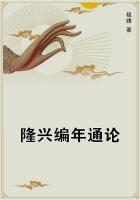About forty-eight hours later Godfrey arrived duly at the little Essex station three miles from Monk's Acre. There was nobody to meet him, which was not strange, as the hour of his coming was unknown. Still, unreasonable as it might be, the contrast between the warmth and affection that had distinguished his departure, and the cold vacuum that greeted his arrival, chilled him. He said a few words to the grumpy old porter who was the sole occupant of the platform, but that worthy, although he knew him well enough, did not seem to realise that he had ever been away. During the year in which so many things had happened to Godfrey nothing at all had happened to the porter, and therefore he did not appreciate the lapse of time.
Leaving his baggage to be brought by the carrier's cart, Godfrey took the alpenstock that, in a moment of enthusiasm, the guide had given him as a souvenir of his great adventure, and started for home. It was a very famous alpenstock, which this guide and his father before him had used all their lives, one that had been planted in the topmost snows of every peak in Switzerland. Indeed the names of the most unclimbable of these, together with the dates of their conquest by its owners, sometimes followed by crosses to show that on such or such an expedition life had been lost, were burnt into the tough wood with a hot iron. As the first of these dates was as far back as 1831, Godfrey valued this staff highly, and did not like to leave it to the chances of the carrier's cart.
His road through the fields ran past Hawk's Hall, of which he observed with a thrill of dismay, that the blinds were drawn as though in it someone lay dead. There was no reason why he should have been dismayed, since he had heard that Isobel had gone away to somewhere in "Ameriky," as Mrs. Parsons had expressed it in a brief and illspelt letter, and that Sir John was living in town. Yet the sight depressed him still further with its suggestion of death, or of separation, which is almost as bad, for, be it remembered, he was at an age when such impressions come home.
After leaving the Hall with its blinded and shuttered windows, his quickest road to the Abbey House ran through the churchyard. Here the first thing that confronted him was a gigantic monument, of which the new marble glittered in the afternoon sun. It was a confused affair, and all he made out of it, without close examination, was a life-sized angel with an early-Victorian countenance, leaning against the broken stump of an oak tree and scattering from a basket, of the kind that is used to collect nuts or windfall apples, on to a sarcophagus beneath a profusion of marble roses, some of which seemed to have been arrested and frozen in mid-air. He glanced at the inion in gold letters.
It was "To the beloved memory of Lady Jane Blake, wife of Sir John Blake, Bart., J.P., and daughter of the Right Hon. The Earl of Lynfield, whose bereaved husband erected this monument--'Her husband . . . praiseth her.'"
Godfrey looked, and remembering the gentle little woman whose crumbling flesh lay beneath, shivered at the awful and crushing erection above. In life, as he knew, she had been unhappy, but what had she done to deserve such a memorial in death? Still, she was dead, of that there was no doubt, and oh! the sadness of it all.
He went on to the Abbey, resisting a queer temptation to enter the church and look at the tomb of the Plantagenet lady and her unknown knight, who slept there so quietly from year to year, through spring, summer, autumn and winter, for ever and for ever. The front door was locked, so he rang the bell. It was answered by a new servant, rather a forbidding, middle-aged woman with a limp, who informed him that Mr. Knight was out, and notwithstanding his explanations, declined to admit him into the house. Doubtless she thought that a young man, wearing a foreign-looking hat and carrying such a strange long stick, must be a thief, or worse. The end of it was that she slammed the door in his face and shot the old-fashioned bolts.
Then Godfrey bethought him of the other door, that which led into the ancient refectory, which was now used as a schoolroom. This was open, so he went in and, being tired after his long journey, sat himself down in the chair at the end of the old oak table, that same chair in which Isobel had kissed him when he was a little boy. He looked about him vaguely; the place, of course, was much the same as it had been for the last five hundred years, but, as he could see from the names on the copybooks that lay about, the pupils who inhabited it had changed. Of the whole six not one was the same.
Then, perhaps for the first time, he began to understand how variable is the world, a mere passing show in which nothing remains the same, except the houses and the trees. Even these depart, for a cottage with which he had been familiar from his earliest infancy, as he could see through the open door, was pulled down to make room for "improvements," and the great old elm, where the rooks used to build, had been torn up in a gale. Only its ugly stump and projecting roots were left.
So he sat musing there, very depressed at heart, till at length Mrs.
Parsons came and discovered him in a half-doze. She, too, was somewhat changed, for of a sudden age had begun to take a hold of her. Her hair was white now, and her plump, round face had withered like a spring apple. Still, she greeted him with the old affection, for which he felt grateful, seeing that it was the first touch of kindness he had known since he set foot on English ground.














